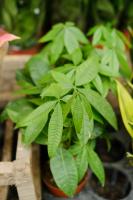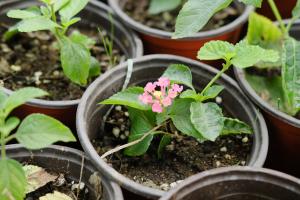Are Fig Tree Plants Poisonous to Dogs?
A fig tree is a popular houseplant that is known for its attractive foliage and tasty fruit. Many people choose to grow this plant in their homes, but pet owners may wonder if fig trees are safe for their dogs. In this article, we will explore whether fig tree plants are poisonous to dogs and what you can do to keep your furry friend safe.
Understanding Fig Tree Plants
Fig tree plants belong to the ficus family and are native to the tropics. They grow well as indoor plants and are often used as decorative elements in homes and offices. Fig tree plants produce figs, which are sweet and nutritious. However, the leaves and sap of these plants contain chemicals that can be harmful to pets, including dogs.
Why Fig Tree Plants Can Be Dangerous to Dogs
The leaves of fig tree plants contain a substance called ficin, which is known to cause skin irritation and allergic reactions in pets. Dogs that come into contact with these leaves may experience symptoms such as itching, redness, and swelling. In some cases, dogs may even develop rashes or blisters on their skin. Ingesting the leaves or sap of a fig tree plant can also cause gastrointestinal upset in dogs, including nausea, vomiting, and diarrhea.
Recognizing the Signs of Fig Tree Poisoning in Dogs
If your dog has come into contact with a fig tree plant, you should monitor them closely for signs of poisoning. The symptoms of fig tree poisoning in dogs include:
Skin irritation and itching
Redness and swelling
Rashes and blisters
Nausea and vomiting
Diarrhea
Loss of appetite
If your dog is experiencing any of these symptoms, you should contact your veterinarian right away. They can provide you with advice on how to treat your dog and may recommend that you bring them in for an examination.
Keeping Your Dog Safe Around Fig Tree Plants
If you have a fig tree plant in your home, there are several things you can do to keep your dog safe. First, you should keep the plant out of reach of your pet. This means placing it on a shelf or in a room that your dog does not have access to. You should also keep your dog away from any fallen leaves or sap from the plant.
If your dog does come into contact with a fig tree plant, you should wash their skin with mild soap and water. If they have ingested any part of the plant, you should contact your veterinarian right away. In some cases, your veterinarian may recommend inducing vomiting to prevent further absorption of the toxins.
Conclusion
Fig tree plants may be popular houseplants, but they can be toxic to dogs. The leaves and sap of these plants can cause skin irritation, allergic reactions, and gastrointestinal upset. If you have a fig tree plant in your home, you should take steps to keep your dog away from it to prevent accidental poisoning. If your dog does come into contact with a fig tree plant, you should contact your veterinarian right away.

 how many times do yo...
how many times do yo... how many planted tre...
how many planted tre... how many pine trees ...
how many pine trees ... how many pecan trees...
how many pecan trees... how many plants comp...
how many plants comp... how many plants can ...
how many plants can ... how many plants and ...
how many plants and ... how many pepper plan...
how many pepper plan...






























